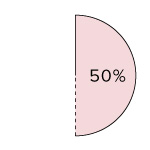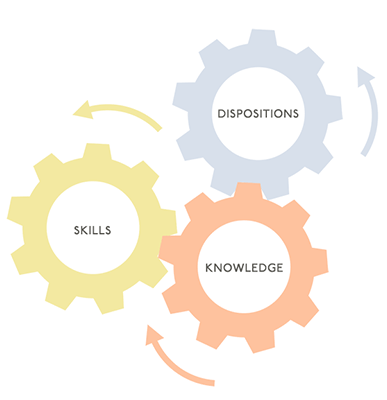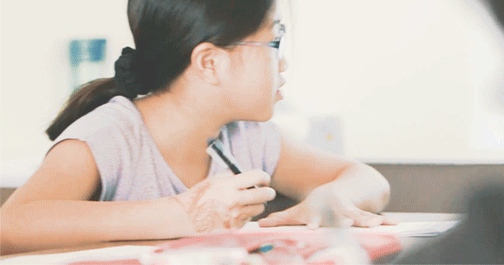“The PSLE is a useful checkpoint at the end of primary school to help [you] determine where [your] child’s academic strengths lie. This guides the child to a suitable academic programme in secondary school — one that best fits his or her learning needs.”
- Mr Ng Chee Meng, Minister for Education (Schools),
at the 2018 COS Debate
Your child’s Primary 6 year is a significant time in his or her academic journey.
Your 12-year-old child will be sitting for his or her first major examination: The Primary School Leaving Examination (PSLE)
Through this PSLE e-book, we hope to provide key insights on the PSLE and share tips on how to help your child to build up a steady momentum in order to peak at the PSLE.
You will find valuable tips on ways to help your child master the content covered in exams, ways to hone the key exam skills for academic excellence and advice on how to exercise the right habits and attitudes to make this road towards the PSLE as rewarding as it is meaningful for your child.
In case you missed it:
PSLE e-book Chapter 2: Putting in Place An Effective Revision Strategy
PSLE e-book Chapter 3: Your Essential Guide To PSLE Oral Excellence
1. Are You Ready to Embark on the PSLE Journey with Your Child?
2. The Road to PSLE: What's in Store for My Child?
3. Key Dates for PSLE 2022
4. A Closer Look at the PSLE Formats
5. Unlocking the Key Elements for PSLE Success
6. What Is My Role as a PSLE Parent?
7. An Education Partner that Delivers Results
8. Your Child's PSLE Road Map with TLL
9. What's Next? Plan Out an Effective Revision Strategy

According to a survey conducted by the Institute of Policy Studies (IPS), when it comes to PSLE preparation:

71% of parents found helping their child with numerous tests and exams stressful

60% were anxious about helping their child with the challenging syllabus

50% of parents were concerned their child could not keep up with work or achieve desired grades
As parents of a Primary 6 child, you are likely to be in one of these groups:

First-time PSLE Parent

Seasoned PSLE Parent
If you are on the PSLE journey with your child for the first time, we know you may:
Parents who are embarking on the PSLE journey with their child for the second or third time may also find that managing the PSLE can be equally challenging. Why?
Regardless of which group you belong to, we know one thing for sure — you want your 12-year-old to have the best academic support, the best resources and the best revision plan to help him or her score well for the PSLE.
And that’s what we hope to do for you, as your partner on this journey.
The PSLE year may be overwhelming for your child.
During this final year of your child’s primary school journey, he or she has been tasked to manage the tall order of consolidating, revising and applying all the content knowledge he or she has accumulated from Primary 3 to Primary 6.
At the same time, your child will need to learn new Primary 6 topics to complete the PSLE syllabus and refine exam skills and techniques.
He or she will also have to prepare for a series of examinations throughout the year such as the CA1, SA1, and Prelims.

The ability to balance revision and learning new topics in Primary 6 is a critical success factor.
While your child gets busy with his or her PSLE revision, ensure that he or she takes regular breaks to unwind. It could be chatting with a family member or reading a chapter of his or her favourite novel — breaks are necessary to reinvigorate your child so that he or she can have the stamina to last through the intensive revision period.
Getting enough sleep is important too! Ms Joyce Simpson, English Subject Head for TLL Rochester, adds, “Sleep is deeply connected to our learning process. Without the correct amount of sleep, your child will have a harder time retaining information that he or she has learnt. In addition, getting adequate sleep also keeps your child’s immune system healthy — burning the midnight oil may only exacerbate the stress.”







*The dates are tentative, correct as of 1 March 2022. The full examination timetable will be made available on 4 March 2022. Finalised dates to be confirmed by SEAB.
Download It, Print It and Put It Up
In the run-up to the PSLE, it is important for your child to become familiar with the examination formats so that he or she will be able to plan his or her time effectively for each paper.
Doing practice papers is an easy yet effective way to help your child understand what is required of him or her for each subject paper. More importantly, ensure that your child attempt these practice papers under exam conditions.
Studies have highlighted that those who regularly self-test compared have higher rates of information retention than those who do not. As a parent, you can act as an invigilator and also make sure that your child does not have any distractions while completing the practice paper. Do not forget to ask your child to make a note of questions that you have trouble solving so that he or she might consult his or her teacher!

Knowledge, skills and dispositions — these are the three key elements that lead to success at the PSLE.
At The Learning Lab, we adopt the Knowledge, Skills, Dispositions (KSD) model as part of our teaching learning framework.
It guides all that we do — from the way our curriculum team develops programmes for your child to the way lessons are delivered by our teachers.
As a parent, you may be asking yourself:
When parents are involved in their child’s education, their child is more likely to have higher self-esteem, be disciplined, have more self-motivation and tend to achieve better grades.
Staying involved in your child’s PSLE journey includes:
As you watch your child take on the PSLE, your most important role is to be a cheerleader.
To ensure that your child’s mental and emotional well-being is not overlooked, make it a point to talk your child through his or her difficulties and insecurities.
After clocking hours of studying, what your child really needs is strong and positive encouragement from you.
Ms Cassondra Tioh, English Subject Head at TLL Marine Parade Central, advises, “Remember that PSLE is just your child’s first hurdle of the academic race. Even if your child stumbles, he or she should know that regardless of the outcome, you love him or her.
There are many routes to excellence and as long as your child has a positive growth mindset, your child can always pick himself or herself up and charge ahead.”
With less time to cover new content and revision this year, what your child needs in the lead-up to the PSLE is a strong and systematic academic support system that works.
Just as your child needs strong support in the lead-up to the PSLE, you need a reputable education partner who is trustworthy and is able to deliver results.
In 2021, 1 out of 3 TLL students achieved a PSLE score of 6 or better.
A Fulfilling Journey Towards PSLE Excellence With The Learning Lab

“We found that The Learning Lab’s lesson materials are good — they are relevant, have a clear structure and highlight key areas of focus — more importantly, our son found the worksheets especially useful when he was completing his revision.
Also, his teachers were very dedicated and hardworking. Throughout the preparation period, they helped him to work on areas of weakness and taught him effective exam techniques that really helped him to better understand the topics that were tested.” — Mediacorp Artiste Zoe Tay and husband, Parents of PSLE High Scorer in 2017

Through our years of experience in helping students find success at the PSLE, we've found that the best way to prepare your child for this major examination is to give him or her ample opportunities to:
1. practise exam skills
2. revise PSLE content
Guided by the principles of our KSD model, we have put a well-structured PSLE road map in place for your child.

Practice makes perfect.
While your child prepares for the PSLE, it is important that he or she has access to the right materials to engage in revision that is targeted and allows for the consolidation of knowledge.
From learning how to set up revision routines to reviewing past mistakes, read Chapter 2 — Putting In Place An Effective Revision Strategy, for more ways to boost and enhance your child’s PSLE revision.
The Learning Lab has a wealth of resources you and your child can benefit from. Don't miss out on advice, study tips and essential education articles.
In Case You Missed It:
PSLE e-book Chapter 2: Putting in Place An Effective Revision Strategy
PSLE e-book Chapter 3: Your Essential Guide To PSLE Oral Excellence
You might also enjoy these resources:
Related Article : Get Your Child Ready For PSLE
Related Article : Kick-Start Your Child's PSLE Preparation
Related Article: Zoe Tay's Tips For PSLE Preparation All Parents Should Know
The Learning Lab is now at 8 locations. Find a location that suits your needs.
For any enquiry about our Primary 6 programmes or class schedules, you may contact us at 6733 8711 or drop us an email at enquiry@thelearninglab.com.sg.